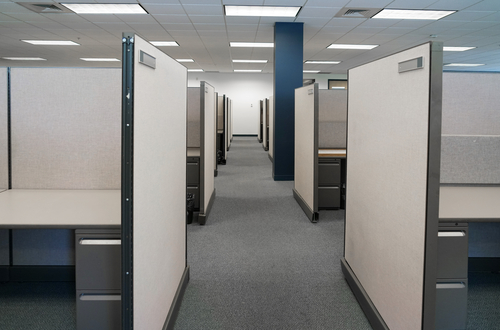-

End of Traditional Office?
Over the past five months, the global spread of COVID-19 pandemic has plunged the economy by various sectors into a paralysis, from aviation industry to e-commerce sector to manufacturing. This has, in an unorthodox way, amplified the debate over the future of work. With millions of people working from home today, the question has been asked throughout every sphere of the economy: are we seeing a beginning of the end of traditional offices?
These debates have been there in the existence since the past decade too. With around 99% of the American workforce willing to work from home at least once in their lifetime, the interest in remote working is not without merit, for both organizations and the individuals.
With a flexible timing and customized workplace, the employees tend to see a positive shift in their productivity and work life balance. With the minimal commute, lesser office politics and no ‘quick’ questioning, employees find a peace of mind and can focus on the assigned project only.
Through a financial lens, it is more inspiring to know that an employee in the U.S.A. working remotely can save between $2,000 to $6,500 per year. Parking, car maintenance, fuel, child day care, professional wardrobe can all be reduced or eliminated from the spending. The salary which one earns in a metropolitan city can now be saved and spent according to a tier-3 city.
The engagement rate of the employees increases with the flexibility that spikes with remote work. According to Gallup, active disengagement can cause the U.S. a loss of $500 billion. Companies can save a large chunk of amount by allowing people working remotely. Real estate needs are reduced significantly when a fewer number of staff need to be onsite. Remote employees also cut the cost related to computers, telephones, air conditioning and heating, electricity and internet. A greater strategic advantage for companies is to have a greater global presence with remote working. Hiring talent from a wider pool of job seekers around the world helps the companies to find more skilled and affordable human resource.
As we can see these days also, nature is healing itself faster than ever before. A worker in pyjamas working from home is much environment friendly than a worker in suit traveling to office daily. Due to controlled transportation in lockdown in India that has 21 out of 30 most polluted cities in the world, a steep fall in pollutants like PM 2.5 and blue skies signal a dramatic shift for the nation.
Also, the ever-evolving technological advancements we see in almost all the industries could call a total reimagination of how we work and live with each other. Various tools and applications have crowded the market to fill the gap between working from a traditional office and working from a remote location.
If this trend continues, the next revolution in office topologies is nearer. This transition from working in a packed office to working from anywhere remotely enhances nearly all parties in the business from the company to the employee to the environment. We leave this question open ended to you too, but we can safely say that this novel coronavirus is acting as a catalyst in shaping the remote working norm.About the Author

Kamal Rastogi is a serial IT entrepreneur with 25 yrs plus experience. Currently his focus area is Data Science business, ERP Consulting, IT Staffing and Experttal.com (Fastest growing US based platform to hire verified / Risk Compliant Expert IT resources from talent rich countries like India, Romania, Philippines etc...directly). His firms service clients like KPMG, Deloitte, EnY, Samsung, Wipro, NCR Corporation etc in India and USA.